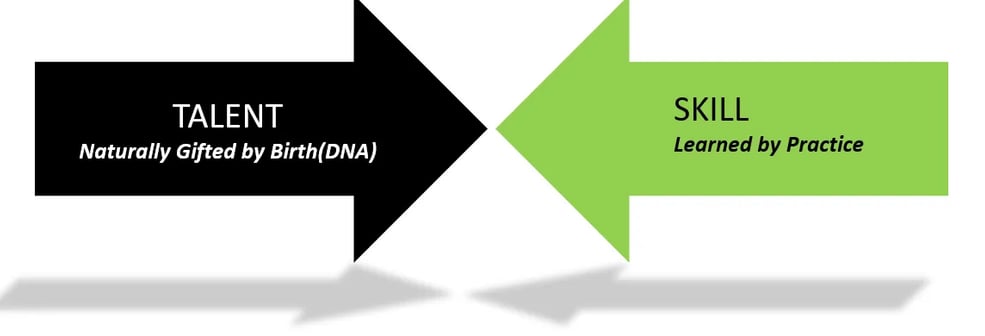Talent Vs Skill
Unraveling the Distinction Between Talent and Skills
SELF HELPEMOTIONAL ECHOES
9/30/20232 min read


Unraveling the Distinction Between Talent and Skills
In the world of human potential, the terms "talent" and "skills" are often used interchangeably, yet they represent distinct aspects of a person's capabilities. Understanding the difference between talent and skills is not only crucial for personal growth but also for organizations seeking to harness the unique abilities of their members. In this article, we will explore the definitions of talent and skills, their characteristics, and how they complement each other.
Defining Talent and Skills
Talent: Talent refers to innate, natural abilities or aptitudes that individuals possess from birth or develop early in life. These abilities often manifest as inclinations or predispositions toward specific activities or areas of expertise. Talents are part of a person's genetic or inherent makeup and can be challenging to acquire through training or education. They are often the foundation upon which skills are built.
Skills: Skills, on the other hand, are acquired competencies developed through practice, training, and experience. They are the result of deliberate efforts to acquire and refine abilities in a particular area. Skills can be learned and improved over time, and they often represent the practical application of knowledge and expertise.
Key Characteristics
Innate vs. Acquired:
Talent is inherent and exists naturally within an individual.
Skills are acquired through learning, training, and practice.
Inclination vs. Expertise:
Talent reflects a predisposition or natural aptitude for a specific activity.
Skills represent the expertise and competence developed in a particular area through effort and experience.
Foundation vs. Building Blocks:
Talent serves as the foundation upon which skills can be built. It provides a starting point.
Skills are the building blocks that can be developed upon the foundation of talent.
Longevity vs. Effort:
Talents often persist throughout a person's life.
Skills may improve, deteriorate, or change based on an individual's efforts and experiences.
Transferability vs. Specificity:
Talents can sometimes be transferable to various domains.
Skills tend to be domain-specific and are often honed for particular tasks or professions.
Complementary Relationship :Talent and skills are not mutually exclusive; rather, they often work in tandem
Talent as Potential: Talent represents an individual's untapped potential. It provides the raw materials from which skills can be developed. For example, someone with a natural talent for music may become a skilled musician through dedicated practice and training.
Skills as Manifestation: Skills are the manifestation of an individual's talent. They represent the practical application of one's innate abilities. The musician's skills, such as playing an instrument or composing music, are the visible outcomes of their musical talent.
Continuous Growth: Individuals can leverage their talents to acquire and refine specific skills continually. The interplay between talent and skills can lead to continuous growth and mastery in a chosen field.
In summary, talent and skills are distinct but interconnected aspects of human potential. Talent represents innate abilities or inclinations, while skills are acquired competencies developed through effort and experience. Recognizing the difference between the two can help individuals and organizations make informed decisions about personal development, career choices, and talent management. Embracing both talent and skills allows individuals to unlock their full potential and achieve excellence in their chosen pursuits.
